
Find Help
More Items From Ergsy search
-
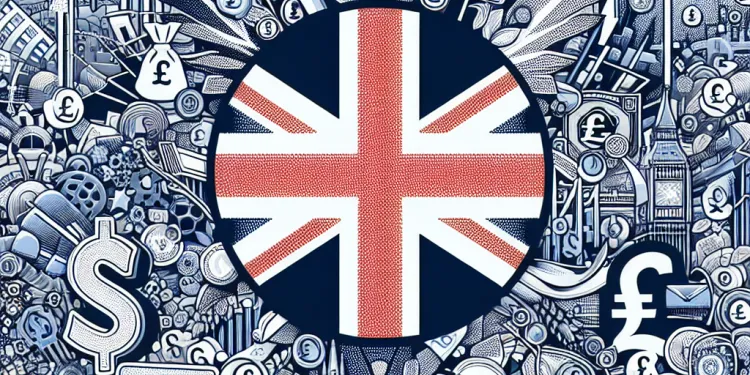
How do other countries implement a wealth tax?
Relevance: 100%
-

Are there any countries currently implementing a wealth tax?
Relevance: 100%
-

What is a Wealth Tax?
Relevance: 88%
-

What is the Wealth Tax in the UK?
Relevance: 86%
-

What is the wealth tax in the UK?
Relevance: 84%
-

Can a wealth tax be levied annually?
Relevance: 83%
-

Could a wealth tax encourage tax avoidance?
Relevance: 81%
-

Has the UK ever had a wealth tax?
Relevance: 80%
-

Would a wealth tax apply to foreign assets?
Relevance: 80%
-
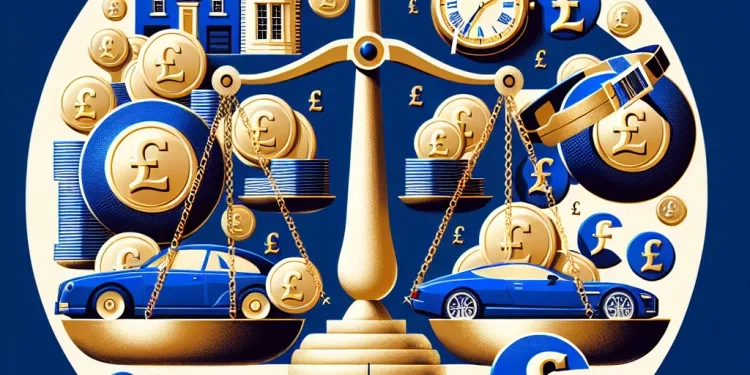
What arguments are made for a wealth tax in the UK?
Relevance: 79%
-

Why doesn't the UK have a wealth tax?
Relevance: 79%
-

Do wealth taxes differ between countries?
Relevance: 77%
-

What is the objective of a wealth tax?
Relevance: 77%
-

Who is typically subject to a wealth tax?
Relevance: 77%
-

Would a wealth tax replace other taxes in the UK?
Relevance: 76%
-

Has any political party in the UK supported a wealth tax?
Relevance: 74%
-

What are the challenges of implementing a wealth tax?
Relevance: 74%
-

How does a wealth tax differ from an income tax?
Relevance: 73%
-

How do governments ensure compliance with wealth tax laws?
Relevance: 73%
-

How do economists view the impact of wealth taxes?
Relevance: 73%
-

How is a wealth tax typically calculated?
Relevance: 73%
-

What are the administrative costs of a wealth tax?
Relevance: 73%
-

Could a wealth tax affect economic growth in the UK?
Relevance: 72%
-

What are common arguments in favor of a wealth tax?
Relevance: 72%
-

Can a wealth tax impact economic behavior?
Relevance: 72%
-

How might a wealth tax impact inequality in the UK?
Relevance: 72%
-

Is real estate included in wealth tax calculations?
Relevance: 71%
-

How might a wealth tax affect wealthy individuals?
Relevance: 70%
-

How does council tax relate to wealth in the UK?
Relevance: 61%
-
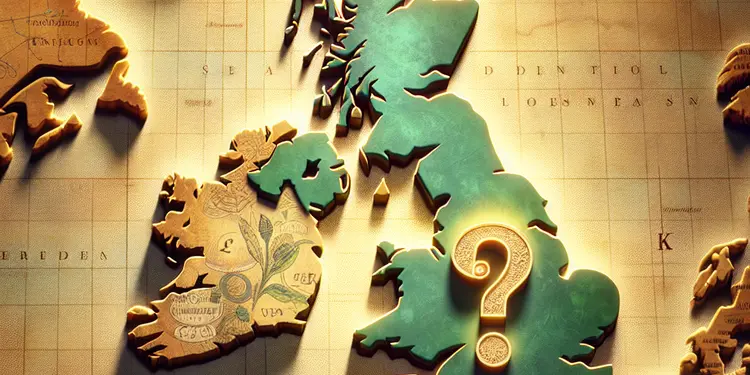
Which countries impose inheritance tax?
Relevance: 61%
-

What taxes in the UK target wealth?
Relevance: 55%
-

What are common criticisms of a wealth tax?
Relevance: 53%
-

What exemptions are commonly associated with wealth taxes?
Relevance: 51%
-

Are there alternatives to a wealth tax for addressing inequality?
Relevance: 49%
-

Has the idea of a wealth tax been discussed in political debates?
Relevance: 47%
-
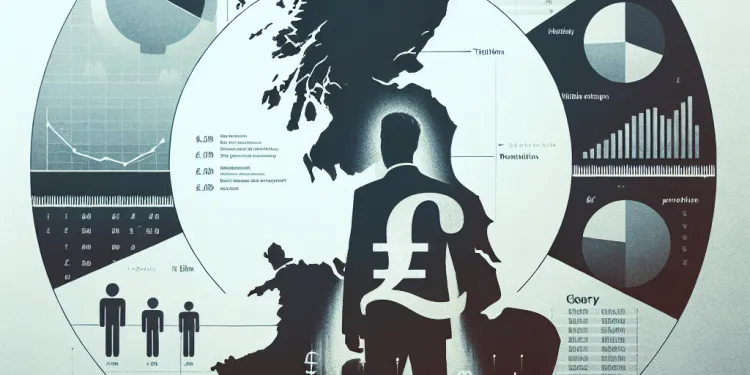
Do public opinion polls support a wealth tax in the UK?
Relevance: 47%
-

What types of assets are typically subject to a wealth tax?
Relevance: 45%
-

Have any other countries implemented a sugar tax similar to the UK?
Relevance: 40%
-
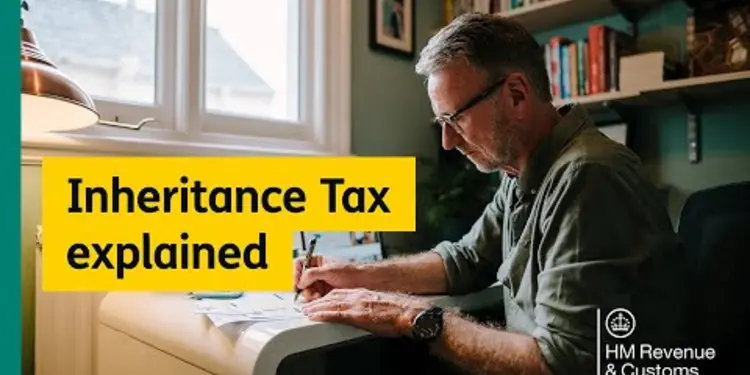
What is Inheritance Tax?
Relevance: 38%
-

Are there professional advisors for inheritance tax planning?
Relevance: 38%
Introduction to Wealth Tax
A wealth tax is a levy on the total value of personal assets, including real estate, cash, savings, investments, and other forms of wealth. The concept of wealth tax differs from income tax, which is based solely on earnings. Wealth taxes aim to reduce economic inequality and generate revenue by taxing the assets of the richest individuals in a society.
Countries Implementing Wealth Tax
Several countries have at various times implemented a wealth tax, though its popularity and application have waxed and waned due to practical challenges and economic considerations. Some countries, however, continue to employ a wealth tax to address wealth disparity and raise government funds. Notably, European nations have been inclined toward wealth taxation, albeit with differing structures and rates.
One prominent example is Spain. Spain imposes a wealth tax on individuals, with regional governments having the authority to set their rates and exemptions. Typically, the tax targets only those with assets above a certain threshold, ensuring the middle class remains largely unaffected. In recent times, the Spanish government reintroduced the wealth tax as a temporary measure during economic crises to bolster public finances.
Norway has also maintained a wealth tax for several years. The tax applies to net wealth above a specific exemption level, with various deductions available. Norway's approach focuses on promoting financial transparency and redistributing wealth more equitably across its population.
Past Implementations and Challenges
Countries such as France and Switzerland have also experimented with wealth taxes. France notably repealed its 'Impôt de solidarité sur la fortune' (ISF) in favor of a tax targeting real estate, citing concerns over capital flight and economic competitiveness. Switzerland, on the other hand, administers wealth taxes at the cantonal level, making its system unique and relatively cumbersome for taxpayers.
The challenges with implementing a wealth tax often include complex valuation processes and the risk of capital flight. High-net-worth individuals may move their assets or residency to lower-tax jurisdictions, undermining the tax's effectiveness. Additionally, valuing illiquid assets accurately poses significant administrative hurdles.
Conclusion
While a number of countries have implemented or maintained wealth taxes, these taxes tend to evolve based on economic conditions and political will. The debate over the efficacy and fairness of taxing wealth continues, with some advocates pushing for more wide-ranging application as a tool to curb inequality. However, practical challenges, administrative costs, and economic arguments against such measures often temper their broader adoption.
What is a Wealth Tax?
A wealth tax is money that people pay to the government based on what they own. This includes houses, money, and other valuable things. It is different from an income tax, which is based on how much money you earn. Wealth taxes try to make everyone more equal by taking more money from rich people.
Where is Wealth Tax Used?
Some countries use a wealth tax but not all the time. It can be hard to keep working well. Some places, especially in Europe, use it to help make things fairer and to get money for the government.
In Spain, there is a wealth tax. Different areas in Spain decide their own rules about it. Only very rich people pay it, so most people are not affected. Spain used this tax again during tough times to get more money for the country.
Norway also has a wealth tax. It only affects people who own a lot. Norway uses this tax to be fair and to know exactly how much people have.
Problems with Wealth Tax Before
France and Switzerland tried wealth taxes too. France stopped their wealth tax and now has a tax only on property because they were worried rich people would leave. In Switzerland, different areas have their own rules, which makes things complicated.
Wealth taxes can be hard to work out. It can make rich people move their money or go to other places where taxes are lower. It is also hard to decide how much some things people own are worth.
Wrapping Up
Many countries have tried a wealth tax, but they change it a lot. People argue about whether it is fair or useful. Some people want more taxes like this to make things equal. But it costs a lot to manage, and some people think it is not right. This means not all countries want to have a wealth tax.
Frequently Asked Questions
What is a wealth tax?
A wealth tax is a levy on the total value of personal assets, which may include real estate, cash, investments, and other owned items, instead of income.
Are there any countries that have implemented a wealth tax?
Yes, there are several countries that have implemented a wealth tax in some form, though the specifics and effectiveness can vary significantly from one country to another.
Which European countries currently have a wealth tax?
As of the latest data, Spain, Norway, and Switzerland are known to have some form of a wealth tax.
Has France had a wealth tax?
France had a wealth tax called the ISF, which was reformed into a property-based wealth tax (IFI) in 2018.
How does Spain implement its wealth tax?
Spain imposes a wealth tax on residents' worldwide assets, with varying rates depending on the region.
What is the wealth tax situation in Switzerland?
Switzerland levies a wealth tax at the cantonal level, with tax rates varying across different cantons.
Why do some countries choose to implement a wealth tax?
Countries may implement a wealth tax to address income inequality, increase government revenue, and redistribute wealth.
Are wealth taxes effective?
The effectiveness of wealth taxes is debated, as they can lead to capital flight and tax evasion, but they can also help reduce inequality if well-implemented.
Has Norway implemented a wealth tax?
Yes, Norway has a wealth tax that applies to individuals based on their net worth above a certain threshold.
What happened to the wealth tax in Germany?
Germany had a wealth tax until 1997, when it was ruled unconstitutional over assessments, and it has not been reinstated since.
Did the United States ever have a wealth tax?
The United States has never implemented a national wealth tax, though it has been a subject of political debate.
Does Italy have a wealth tax?
Italy does not have a broad wealth tax, though it imposes taxes on specific assets, like real estate and financial accounts held abroad.
Is there a wealth tax in the UK?
The United Kingdom does not have a wealth tax, although it does have property taxes and inheritance taxes.
What challenges do countries face with implementing a wealth tax?
Challenges include valuation of assets, enforcement, potential capital flight, and tax evasion.
How does a wealth tax differ from an income tax?
A wealth tax is based on the net value of assets owned, whereas an income tax is based on the earnings received over a period of time.
What are some common exemptions in wealth tax systems?
Common exemptions include primary residences, pension plans, and personal belongings up to a certain value.
Can wealth taxes lead to double taxation?
Yes, without careful structuring, wealth taxes can result in double taxation since taxed income is used to acquire taxed assets.
How do taxpayers typically respond to wealth taxes?
Responses can include tax avoidance, emigration to lower tax jurisdictions, or restructuring of assets to minimize liability.
What role does public perception play in wealth tax implementation?
Public perception is crucial, as wealth taxes need popular support to be sustainable given the potential for controversy over fairness and effectiveness.
Are there proposals for new wealth taxes in any countries?
Yes, there are ongoing discussions and proposals in countries like the United States and the UK, driven by concerns over inequality.
What is a wealth tax?
A wealth tax is money that some people pay to the government. They pay this money because they have a lot of things that are worth a lot of money, like houses and savings.
To understand this better, you can use pictures or stories. You can also ask an adult to explain it with examples.
A wealth tax is a way the government collects money. It looks at everything a person owns. This can be houses, money, stocks, and other things they have, not just the money they earn.
Do any countries have a wealth tax?
Yes, some countries have a tax on wealth. This means rich people pay money on the things they own. How this works is different in each country.
Which countries in Europe have a wealth tax now?
A wealth tax is money that rich people pay on what they own. Some countries in Europe have this tax.
You can use pictures or charts to help you understand better.
Right now, Spain, Norway, and Switzerland have a tax for people with a lot of money. This is called a wealth tax.
Did France have a tax on money and things?
France used to have a tax for people with lots of money. It was called the ISF. In 2018, France changed this tax. Now, it is a tax for people who own lots of property. This new tax is called the IFI.
Here is a tip to help with reading:
- Break sentences into small parts.
- Use a ruler or paper to guide your eyes along each line.
- Read with someone and take turns.
How does Spain use its wealth tax?
Spain has a special tax for people with a lot of money and things. It is called a "wealth tax."
If you have this much money or stuff, you might pay the wealth tax:
- A house
- Cars
- Jewelry
- Money in the bank
Not everyone has to pay. Only if you have over a certain amount. It is different in each part of Spain, too.
Would you like help figuring out the wealth tax?
Here are some tips to help:
- Ask someone who knows about taxes for help
- Use a calculator to add up your money and things
- Check online for rules in your area
In Spain, people have to pay a special tax if they own a lot of things that are worth a lot of money. This tax is called a wealth tax. The amount of tax you have to pay can change based on where you live in Spain.
If you find reading hard, you can try using picture dictionaries or audiobooks to help understand big words. You can also ask someone to read it for you and explain what it means.
What is the money tax in Switzerland?
In Switzerland, people sometimes pay a tax on their money and things they own. This is called a "wealth tax." It means if you have a lot of money or things that are valuable, you might have to pay extra money to the government.
To understand how much wealth tax you might pay, you might use a calculator to help you. You can also ask someone to explain it to you, like a family member or a friend who knows about money.
In Switzerland, people pay a tax on how much money and property they have. This tax is called a wealth tax. The amount of tax can be different depending on the area, called a canton, where you live.
Why do some countries use a wealth tax?
Some countries make people with lots of money pay extra taxes. They do this to help share money more fairly. This tax is called a wealth tax.
Here are some reasons why a country might use a wealth tax:
- To help pay for schools, hospitals, and other important things.
- To make sure everyone has a fair chance to have money.
- To help people without enough money get what they need.
If it's hard to read, you can use tools that read text out loud. They can help you understand better.
Some countries might use a wealth tax to help make money more equal, get more money for the government, and share wealth more fairly.
Do taxes on rich people's money work well?
Some people think we should have special taxes for rich people. These taxes take a small part of the rich people's money. The goal is to help everyone have more fairness with money.
But do these taxes really help? Some say yes. They think the money helps with schools and roads. Others say no. They think rich people might find ways not to pay.
What do you think?
Tools to help you understand:
- Talk to someone about it.
- Draw a picture to show how taxes work.
- Use simple words when you think about money questions.
Some people think taxes on rich people work well, but others think they don't.
Rich people might move their money to other countries to avoid paying. This is called "capital flight" and "tax evasion."
But, if done right, these taxes can help everyone have a fairer share of money.
Having pictures, talking about it with someone else, or using simple language tools can help understand taxes better.
Does Norway have a wealth tax?
Norway has a special tax for people with a lot of money or valuable things. This is called a wealth tax.
You can read more about this if it helps. There are tools that can read text out loud or you can ask someone to explain it to you.
Yes, people in Norway pay a special tax if they have a lot of money. This is called a wealth tax. It only affects people who own more than a certain amount of money or things.
What happened to the wealth tax in Germany?
In Germany, there used to be a tax on wealth. This means people with lots of money had to give a little of it to the government. But now, Germany does not have this tax anymore.
If you want to learn more, you can use simple news websites or talk to someone who knows about taxes. They can help explain it to you.
You can also use picture books or watch videos that talk about money and taxes in a simple way.
Germany used to have a wealth tax. This means people had to pay money to the government based on what they owned.
In 1997, the way the tax was checked was not fair. So, they stopped using this tax. They have not brought it back.
Reading tips:
- Read slowly and out loud.
- Use a ruler or your finger under each line.
- Ask someone to help if you don't understand.
Did the United States ever have a tax on money and things people own?
America has never had a national wealth tax. People have talked about it in politics.
Does Italy have a tax on money and things you own?
Italy does not have a general wealth tax. But, it does have taxes on some things like houses and money in banks that are outside of Italy.
Is there a money tax in the UK?
People in the UK do not have a special tax just for being rich. But there are other taxes to pay.
If you have a lot of money, you might pay:
- Income tax: This is money you pay on what you earn from work or other sources.
- Capital gains tax: This is money you pay when you sell things like houses or shares for more than you bought them for.
- Inheritance tax: This is money paid when you give things away after you die if they are worth a lot.
It’s a good idea to ask someone who knows a lot about tax, like an accountant, to help you understand what you need to pay.
The United Kingdom (UK) does not have a special tax called a wealth tax. But, it does have taxes on property and money you inherit when someone dies.
What problems do countries have with using a wealth tax?
A wealth tax means people with lots of money pay more tax. But there are some problems:
- It's hard to know how much money someone really has.
- Rich people might hide their money so they don't have to pay.
- Some people think it's not fair to tax wealth.
- Countries worry rich people will move their money to a different country.
Using pictures and videos can help people understand better. Also, talking with a friend or teacher can make things clearer.
There are some problems we need to think about:
- How much things are worth (this is called valuation of assets).
- Making sure rules are followed (this is called enforcement).
- People taking their money out of the country (this is called potential capital flight).
- People not paying their taxes (this is called tax evasion).
When you have to learn new things, it can help to:
- Break the problem into small steps.
- Use pictures or drawings to understand better.
- Ask questions if something is unclear.
- Use tools like spellcheckers or apps that read text out loud.
What is the difference between a wealth tax and an income tax?
A wealth tax is about the things you own, like houses or cars, and how much they are worth. An income tax is about the money you earn, like from a job, over time.
What are some things people don't have to pay wealth tax on?
Here is a simple way to understand:
- Some people don't have to pay wealth tax on their main house.
- Sometimes, there is no tax on family-owned farms.
- In some places, special art or old items are not taxed.
- Money saved for retirement might not be taxed.
Tips to help understand:
Use pictures or charts to show what is taxed and what is not. Ask someone to explain if you have questions.
Some things are often protected, like the house you live in, your retirement savings, and personal items that are not too expensive.
Do wealth taxes mean you pay tax twice?
Yes, if we don’t plan carefully, taxes on wealth can lead to paying taxes twice because the money you earn (and pay taxes on) is then used to buy things that also get taxed.
How do people usually react to wealth taxes?
People might try to pay less tax by doing things like:
- Moving to a country where they pay less tax.
- Changing how they own their things so they pay less tax.
If you find reading hard, using tools like audiobooks or text-to-speech apps can help. Also, asking someone to explain it can be useful.
How do people’s thoughts and feelings affect making a wealth tax?
When we talk about a wealth tax, we mean a tax on people who have a lot of money or things. It is important to know what people think about this tax because their thoughts and feelings can change if and how the tax is used.
- People's Opinions: If many people think a wealth tax is good, it might happen. If many people do not like it, it might not happen.
- Understanding the Tax: How well people understand the tax can affect their opinions. It helps to have simple explanations and pictures to make it clear.
- Talking About the Tax: When people talk to each other and share their ideas, it can change how they feel about the tax.
Helpful tools like simple videos, audio recordings, and visual aids can help everyone understand and talk about the wealth tax better.
What people think is very important. For wealth taxes to work well, they need people to agree with them, especially because some people might think they are unfair or don't work well.
Are there ideas for new taxes on rich people in any countries?
Some countries are thinking about making new rules. These rules would mean rich people pay more money to the government.
If you find reading hard, here are some tips:
- Ask someone to read with you.
- Use a dictionary to look up new words.
- Take notes to help you remember.
Yes, people in countries like the United States and the UK are talking about this a lot. They are worried about things being unfair.
Useful Links
Have you found an error, or do you have a link or some information you would like to share? Please let us know using the form below.
-->
This website offers general information and is not a substitute for professional advice.
Always seek guidance from qualified professionals.
If you have any medical concerns or need urgent help, contact a healthcare professional or emergency services immediately.
Some of this content was generated with AI assistance. We’ve done our best to keep it accurate, helpful, and human-friendly.
- Ergsy carfully checks the information in the videos we provide here.
- Videos shown by Youtube after a video has completed, have NOT been reviewed by ERGSY.
- To view, click the arrow in centre of video.
- Most of the videos you find here will have subtitles and/or closed captions available.
- You may need to turn these on, and choose your preferred language.
- Go to the video you'd like to watch.
- If closed captions (CC) are available, settings will be visible on the bottom right of the video player.
- To turn on Captions, click settings .
- To turn off Captions, click settings again.
More Items From Ergsy search
-

How do other countries implement a wealth tax?
Relevance: 100%
-

Are there any countries currently implementing a wealth tax?
Relevance: 100%
-

What is a Wealth Tax?
Relevance: 88%
-

What is the Wealth Tax in the UK?
Relevance: 86%
-

What is the wealth tax in the UK?
Relevance: 84%
-

Can a wealth tax be levied annually?
Relevance: 83%
-

Could a wealth tax encourage tax avoidance?
Relevance: 81%
-

Has the UK ever had a wealth tax?
Relevance: 80%
-

Would a wealth tax apply to foreign assets?
Relevance: 80%
-

What arguments are made for a wealth tax in the UK?
Relevance: 79%
-

Why doesn't the UK have a wealth tax?
Relevance: 79%
-

Do wealth taxes differ between countries?
Relevance: 77%
-

What is the objective of a wealth tax?
Relevance: 77%
-

Who is typically subject to a wealth tax?
Relevance: 77%
-

Would a wealth tax replace other taxes in the UK?
Relevance: 76%
-

Has any political party in the UK supported a wealth tax?
Relevance: 74%
-

What are the challenges of implementing a wealth tax?
Relevance: 74%
-

How does a wealth tax differ from an income tax?
Relevance: 73%
-

How do governments ensure compliance with wealth tax laws?
Relevance: 73%
-

How do economists view the impact of wealth taxes?
Relevance: 73%
-

How is a wealth tax typically calculated?
Relevance: 73%
-

What are the administrative costs of a wealth tax?
Relevance: 73%
-

Could a wealth tax affect economic growth in the UK?
Relevance: 72%
-

What are common arguments in favor of a wealth tax?
Relevance: 72%
-

Can a wealth tax impact economic behavior?
Relevance: 72%
-

How might a wealth tax impact inequality in the UK?
Relevance: 72%
-

Is real estate included in wealth tax calculations?
Relevance: 71%
-

How might a wealth tax affect wealthy individuals?
Relevance: 70%
-

How does council tax relate to wealth in the UK?
Relevance: 61%
-

Which countries impose inheritance tax?
Relevance: 61%
-

What taxes in the UK target wealth?
Relevance: 55%
-

What are common criticisms of a wealth tax?
Relevance: 53%
-

What exemptions are commonly associated with wealth taxes?
Relevance: 51%
-

Are there alternatives to a wealth tax for addressing inequality?
Relevance: 49%
-

Has the idea of a wealth tax been discussed in political debates?
Relevance: 47%
-

Do public opinion polls support a wealth tax in the UK?
Relevance: 47%
-

What types of assets are typically subject to a wealth tax?
Relevance: 45%
-

Have any other countries implemented a sugar tax similar to the UK?
Relevance: 40%
-

What is Inheritance Tax?
Relevance: 38%
-

Are there professional advisors for inheritance tax planning?
Relevance: 38%


